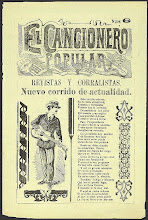In 1886, Rod Lincoln, the self-proclamined bastard son of Abraham Lincoln, went for a proverbial walk down memory lane.
He sat comfortably in his whicker chair on his whicker porch, with the whicker window to his whicker house left open, the smell of apple pie drifting from its cooling spot on the whicker sill. Rod, 36 at this time, rested with his complete collection of the local newspaper's New Years editions starting from his birthyear to his present.
The first ten years of his life's worth of newspapers were provided to him and all the others at the orphanage each January from their arrival till their emancipation with a foster parent, or in the case of Rod, till they were forced out, in tears, at the still emotionally tender age of 16.
Oh Rod! The dissafected youth, always picked on, always waiting for a moment of truth. Since heralded into the orphanage at two weeks of age, Rod was always the runt. The brunt of all the orphan's dejection and anger at fate was then laid onto this outsider of outsiders, so that from from 1850 and California's entry as the 31st state and all the way to 1866 when Andrew Jackson formally declared the Civil War over, our Rod had a hard time with it.
Through the years, new orphans would come and go, and they always seemed to find Rod as a focal point for their frustration, a whipping post of sorts for their vocal lashes. No matter how old, how he thought of his senority, the case remained the same until the month before his 16th year.
In that month, Rod declared he'd take no more. He'd give no less than what he had taken. He gave every remained orphan, most new arrivals as foster care in this particular mountain and coal mining filled town was prosperous, with flowers. Then he was out with a sack of newspapers and a dream.
Rod dreamt of whicker. He loved weaving parts in and out, forming solid planes to then form chairs, mantels, animal shapes. Whicker was his thing. So at 16, Rod traveled the land seeking out masters of the whicker trade. He landed first in small town North Dakota, apprenticed to carnival whare whicker merchant named Sid. Rod ran the merchandize at the tables. He traveld with Sid and the company throughout the state for that season of country fairs. He learned to ferment whicker into a kind of whicker-beer. He invented a kind of slap bracelet of whicker that stands as a straight six inch piece, but upon slapping it against one's wrist, it curls around fitting snug and attractive.
He met his future wife, Belinda, while testing out his invention on the troupe of horseriders from Mongolia. Belinda had emigrated with her family some years before, having passed through mainland China, the southern province, to Hong Kong and stopped in Hawaii for childhood years. Her father, a juggler of pins great and small, was hired into one carnival after another with his most famous trick, the pincushion jugglethon lasting twelve hours.
They traveled, this restless Mongolian clan, eventually building such a reputation as to choose their own bookings, no longer at the mercy of ruthless promoters and small town gigs. They enjoyed the plains, the horses, the people of the Dakotas and took in with the particular carnival our Rod belonged to.
And then one day there was the slap bracelet, love, a common bond of whicker and Mongolian barbeque. Rod was always embarrassed at both his physical statue and his orphaned background, and decided to tell Belinda on their second date that he was in fact the lost son to former President Lincoln. She didn't believe him for a second, and said so. She added, "But sounds like a good story. Maybe I'm the descendent of Ghengis Khan, Chances are, what with all his concubines, that most of us are..." And it got into Rod's head one day, remembering this, as he flipped through papers, as his mind wove ideas not unlike weaving bands of whicker, he thought:
"Maybe we are all the descendents of Abraham Lincoln spirtitually, then. If Ghengis Khan had so many brides, that would surely influence things. But what if America, the land, is the bride, with time the mid-wife, and Lincoln, the great man fathered the nation from our great defining trauma. Afterall, the revolution was just a revolution. The means of ruling, the style and substance remained the same, but with a revolution in who did the ruling. But this great war of states? This was our defining moment and Lincoln our leader, a great father...."
That's what Rod thought about-Rod the bastard son of Abraham Lincoln-sitting with his newspapers and whicker and minding the apple pie and thinking about all the good Mongolian style bbq he and his wife and children and grandchildren would soon be enjoying.
Something like this.
Monday, February 02, 2009
Subscribe to:
Post Comments (Atom)




No comments:
Post a Comment